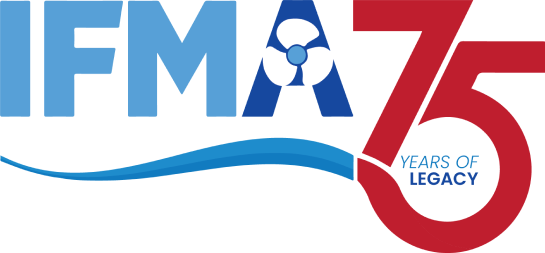






While IFMA members are committed towards preserving the environment and promoting energy efficiency and welcome the noble intent of BEE in mandating the star labelling requirements, however in the current COVID-19 situation, industry is reeling under tremendous economic pressure.
IFMA’s concerns raised before BEE included:
| Supply Side Issues | Demand Side Issues |
|---|---|
|
|
Star Labelling Requirements which become mandatory from 1st Jan 2022 cover sweep sizes of fans as stated in India Standard (IS) 374:2019 covers, namely, 900 mm, 1050 mm, 1200 mm, 1400 mm, and 1500 mm.
Since there are other sweep sizes prevalent in the market, IFMA has been engaging with BEE for the inclusion of these sweep sizes for effective compliance with the star labeling norms.
IFMA suggestions are as follows:
The Recommended standard sizes of ceiling fans shall be 600,750,900,1050,1200,1300, 1400 and 1500 mm.
Before starting the Tests, the fan & its attachment are adjusted in accordance with the manufacturer’s instructions for normal operation. Any controls shall be set for maximum continuous air flow unless the manufacturer’s instruction states otherwise. Any other functions such as Luminaries and remote-control mechanism shall be turned off.
| Sl. No | Fan size(mm) | Air Delivery (m 3/m/W) | Service Value |
|---|---|---|---|
| 1 | 600 | 100 | 1.5 |
| 2 | 750 | 115 | 2.1 |
| 3 | 900 | 130 | 3.1 |
| 4 | 1050 | 150 | 3.1 |
| 5 | 1200 | 210 | 4.0 |
| 6 | 1300 | 215 | 4.0 |
| 7 | 1400 | 245 | 4.1 |
| 8 | 1500 | 270 | 4.3 |
IFMA has been engaging with the Department for Promotion of Industry and Internal Trade on regulations on the import of goods from China and its effect on the fan industry.
IFMA highlighted the hardships faced by the industry such as in Research and Development (R&D), raw material procurement & inventory management of existing products have already slowed down. As per industry estimates, loss of capacity utilization of 60-70% across all manufacturing facilities due to the above reasons, loss of peak season
Any barriers to trade or restriction on any category for imports by the way of a ban or imposition of prohibitory tariffs/duties may be detrimental to both demand and supply of this common man’s product.
IFMA and the fan industry support the government’s push for ‘Make in India’ through boosting domestic manufacturing capabilities, imposing high tariffs in the form of BCD hikes to promote domestic capabilities may prove to be counterproductive for the entire existing value chain.
Since Basic Customs Duty was increased in February 2020, which already led to an increase in consumer prices by ~15+%, it was requested to bring back the BCD to previous levels and give the industry time to scale up production.
Scaling up operations domestically is an industry level intention, however, instantaneously curbing imports would lead to domestic demand not being fulfilled for this common man’s product, to build the requisite capacity to meet the demand for this common man’s product, the industry will require a time frame of at least ~ 2-3 years to scale up operations with the support of the government on developing a comprehensive ecosystem and sophistication required for mass scale commercially viable production of fans.
IFMA has been requesting the CBIC and the GST council for inclusion of GST rate reduction on fans, a common-person product, from current 18% to 5% as an agenda item for discussion in the said GST Council meeting.
IFMA’s request rests on 5 key pillars:
| Public health standpoint | Demand side challenges | Supply side challenges | Energy efficiency standpoint | Atmanirbhar Bharat |
|---|---|---|---|---|
|
|
|
|
|
With a hope that the Union Budget 2020-21 will be a picture-perfect occasion to make a re-assessment and give a further booster shot the economy, IFMA made suggestions to address some immediate challenges at hand – such as GST on fans, reduction in BCD, incentivizing fan manufacturing to stimulate exports.
The recommendations are detailed as under:
| Category | Recommendation | Rationale | ||||
|---|---|---|---|---|---|---|
| GST on Fans |
|
|||||
| Reduction in BCD |
|
|||||
| Incentivize Fan Manufacturing |
|
|||||
Fans are widely recognized as a cost-effective way to provide thermal comfort and as such, they are a ‘common man’s protection against the heatwave which poses a challenge to public health at large, especially in a tropical country like India.
IFMA urged the Ministry of Home Affairs and various State governments to allow for the Opening of shops for electrical fans during the lockdown.
As Government continues to battle and balance health and economic activity, IFMA presented certain innovative solutions for assisting the Government and industry to fight the COVID battle, which included:
